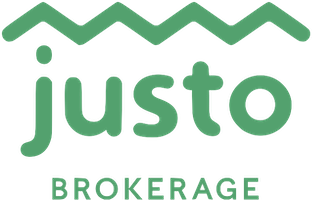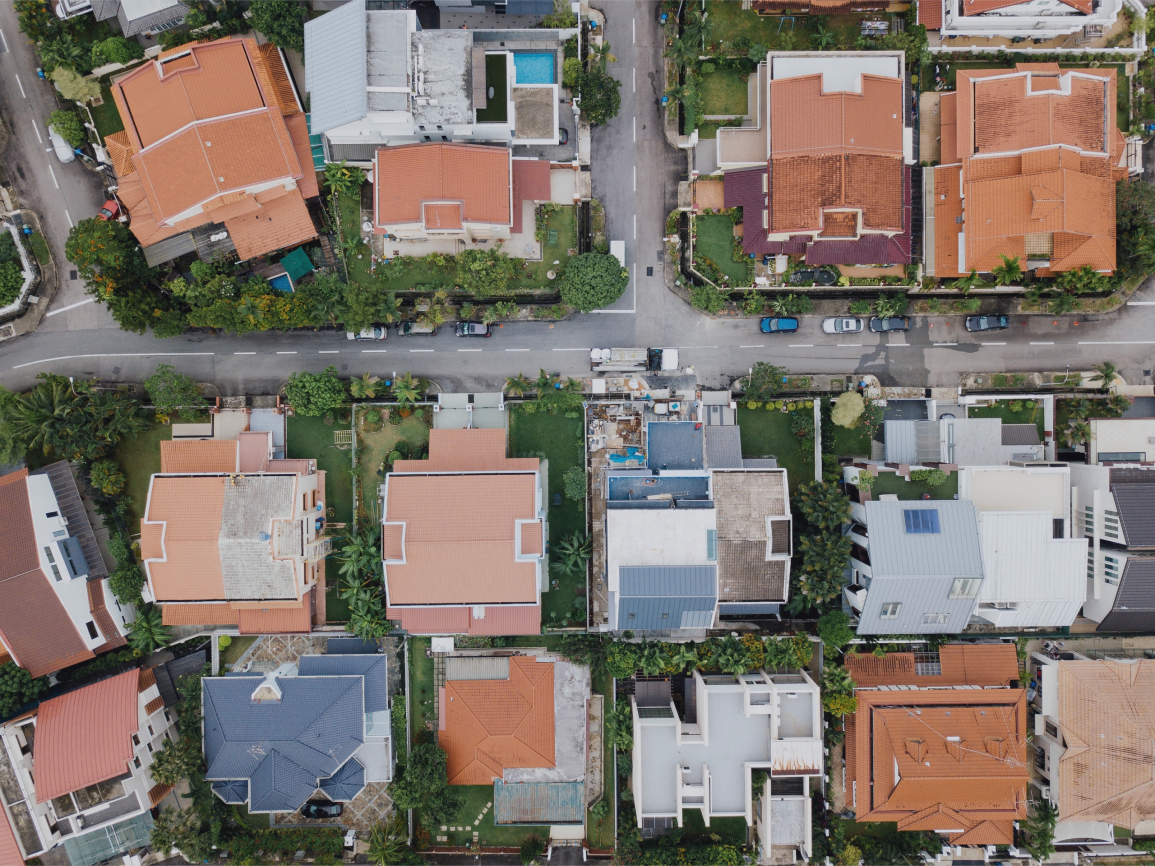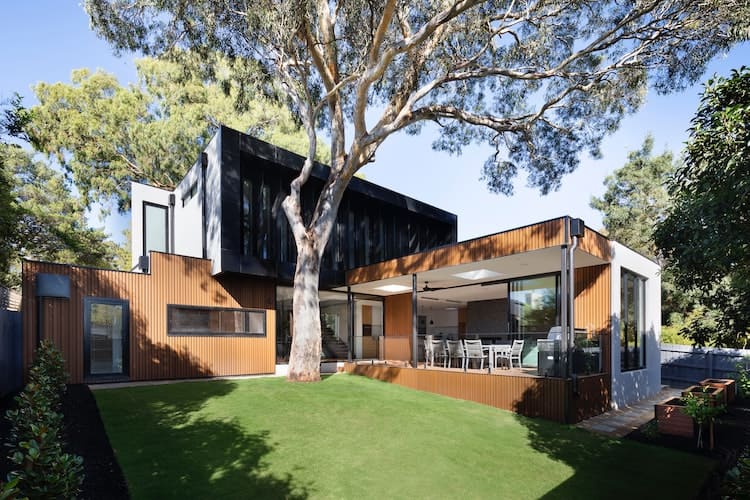
The Ultimate Buyer’s Guide for Buying a House in Toronto
Introduction
Toronto’s hot real estate market and the increase in sale prices for homes in the Greater Toronto Area, make investing in Toronto real estate, now especially a great idea. Given that the Toronto real estate market has been growing so much recently, it’s not uncommon to hear stories about buyers getting into bidding wars over Toronto area homes. Given the increase in Toronto’s housing market, now could be a great time to buy a house in Toronto or the Greater Toronto Area (GTA), given how home prices keep climbing.
Related article: 5 Year Forecast Shows Canadian House Prices are to Rise

Pros for Buying a House
There are many pros for buying a home, especially as home prices in the City of Toronto and the Greater Toronto Area have been steadily increasing. If you have the money and patience for home ownership, this could be a great time to buy. If you buy now, you can hopefully buy before home prices increase and ideally see a large return on your investment since homes typically increase in value, while building equity. Buying a home can also help provide you with a nest egg for the future.
Furthermore, buying a standalone house will allow you to experience greater privacy, you will have more privacy than a person living in a townhouse, row house, apartment or condo. Some people might not care as much about privacy as others but this is a huge benefit.
In some cases, you might pay almost the same amount a month for your mortgage as you might to pay rent a place, this is especially true in Toronto as rental prices in the Greater Toronto Area are extremely expensive. One benefit of homeownership is that generally, your costs are usually more predictable and stable than they are renting if you have a fixed-rate mortgage. And each month if you own a house, whenever you make a mortgage payment, you are getting slightly closer to owning the house outright. However, if you are renting at the end of your lease, what do you have to show for all of the money you paid in rent?
Furthermore, it is possible that the interest and property tax portion of your mortgage payments are tax deductible since in general, the government tries to provide tax breaks to incentivize homeownership, this is usually not the case if you are renting. Moreover, there is a certain pride in owning your own home, and how owning your own home helps you feel more like you are a part of the community where you are living. While there are many advantages associated with buying a house and homeownership, there are some cons associated with buying a house and homeownership that you should be aware of before deciding whether or not homeownership is right for you.
Cons for Buying a House
Homeownership is not for the faint of heart since it requires a long-term financial commitment and you have to be willing to possibly be living in the same place for a long time in order for it to be worth it. While owning your own home can be more expensive than renting, since as a homeowner, you are responsible for all of the maintenance and upkeep associated with your home. This could be as simple as cleaning the gutters to replacing expensive appliances when they break, dealing with landscaping, shovelling snow and clearing walkways during inclement weather. And owning a home means you are tied to one location, this means it will be more difficult for you if you suddenly want or need to pick up and move.
While mortgage payments are usually fixed they can be higher than rent payments. Furthermore, buying a home usually requires a down payment of approximately 20%-35% of the total value of the home, as well as closing costs, appraisal costs, home inspection, insurance, taxes, and moving expenses. This makes buying a home much more expensive than renting. Moreover, it’s possible that the value of your home might not increase during the first few years of home ownership. And during the first 10 years of homeownership, the majority of your mortgage payment is going towards paying down the interest on your mortgage, not the principal for the loan. While borrowing against the equity in your home, to help you pay off and consolidate debts can leave you ‘house poor’.
It is not always easy to get a favourable mortgage to purchase a home. You will have to show a steady source of income, solid employment, low debt-to-income ratio, sufficient cash on hand for a down payment, sufficient funds to cover the costs associated with moving and buying a home, a good credit score, and solid credit history. Interest rates are steadily increasing, so it could be hard if you do not have a solid credit history to qualify for a home loan with favourable interest rates.
Finally, another risk you run when purchasing a home is not seeing a return on your investment. While the real estate market when you purchase your home could be extremely hot, and you may pay a high price for your home, there is no telling that this might always be the case. It’s possible that you might not see a return on your investment when it comes time to sell your home depending on what is happening with the real estate market and other factors which influence home prices, home buying behaviour, etc.
There are several steps involved in the process of purchasing a house in Toronto or the Greater Toronto Area. The steps in this process will vary from buyer to buyer, agent to agent, and broker to broker. However, the steps listed here are the basic components of this process.

Steps for Buying A House in Toronto and the Greater Toronto Area (GTA)
1. Determine your budget, type of house and desired neighbourhood(s)
Before buying a house, you will need to determine what your budget is and you will need to consider how much you are willing to spend and how much you will be able to pay for a given house? These amounts of money will help to determine what houses are available to you. You will also need to figure out what types of houses you want to see. In other words, do you want to look at townhouses, duplexes, detached homes, single family homes, etc. and how many bedrooms and bathrooms you want in a house. You will need to have a list of things that you must have in your new home and things you are looking for in your ideal house and have a list of things that would be nice to have but you can live without them. And you will need to know what neighbourhood(s)you are interested in moving to.
Another important consideration is are you willing to renovate or do things to a house that might be right for you even if it not is move-in ready or not designed in your style? Are you willing to purchase a fixer-upper or do you need a home that is move-in ready? If you are, you will need to consider your budget for repairs, renovations, additions, etc. Are you willing to purchase a house that is in the pre-construction phase or new construction or do you want a house that has already been built? Once you have figured out your answers for these questions, you can proceed to step two.
2. Find an excellent real estate agent or broker that you will enjoy working with to represent you, the buyer
Before you begin looking at houses, you should find a great real estate agent or broker with experience working in and is knowledgeable about the neighbourhood(s) you are interested in. It is important to remember that the houses you might be visiting during open houses on weekends are usually staffed by real estate agents who have a relationship with the seller. The agents at these open houses are usually representing the seller, as the seller’s agent. As the seller’s agent, they are duty bound to act in the seller’s best interest, not necessarily your best interests’ as the buyer. The seller’s agent’s primary job is to ensure that the seller is getting the highest price and best deal possible for the home they are selling. Therefore, it’s essential that you have your own real estate agent or broker who can best represent your interests, as the buyer.
3. Get pre-approved for a loan
Ideally, before you are looking at homes with your agent or broker, you would have already been pre-approved for a loan or you will have sufficient funds ready for when the time comes for you to make an offer. Ideally, you want to have the money lined up before you are looking at homes and have your financial situation figured out before you begin to seriously look at homes to buy. Having a handle on your financial situation will help you to save time and help ensure that you will be able to get the house that you want. You do not want to find the perfect house, make an offer and have the offer fall through if you have not secured the financing to purchase your dream home.
4. Look at homes
Now, this is the fun part, it’s time to start looking at homes. Hopefully, you will find your dream house soon! At this point you are probably looking at houses with your agent or broker and/or possibly by yourself, visiting open houses on weekends. Fingers crossed for you that, you are enjoying this process and are finding good prospect homes with your agent/broker. It is important to remember that looking at homes should be fun, it should not feel like a chore.
5. Find your house and make an offer
At this point, you have hopefully found your dream home! Congratulations! Now it’s time to make an offer and then you will wait. It may take some time to hear back as to whether or not they chose to accept your offer. Now is the time when you will hopefully be sitting back and relaxing until you hear the news as to whether or not the seller accepted your offer.
6. Sign the Agreement of Purchase and Sale (APS)
Congratulations, the seller(s) have accepted your offer! Now it is time to celebrate. After you have celebrated, you will need to sign the papers so you can purchase your future home. When the day to sign the APS arrives, you will need to arrive prepared for this appointment with your government-issued photo ids, such as a driver’s license or passport and your chequebook, since you will not be able to purchase your home without your chequebook and ID. Your real estate agent/broker will be there to walk you through the signing process and answer any other questions you might have at this time.
7. Home Inspection
Before closing and taking possession of the house, it is important to have the house and any other structures on this property inspected. Having a home inspection will help you to avoid any possible nasty surprises when you move into the house. It is important to have your home inspected before closing so you can have the seller fix anything that needs to be fixed or add a discount to the contract to pay for anything that needs to be fixed.
8. Closing
Now it’s time for closing. Today you will meet with your lawyer and/or agent/broker and you will possibly meet with real the seller and their lawyer(s). Today, you will make your final payments and get the keys to the house and the property will be yours! Congratulations!
9. Moving In And Occupancy
Congratulations! The big day has come and it is time to move into your new home! Hopefully, you have found a reputable moving company movers and ready to live in your new house and/or prepare for any work you need or want to do for your house.
Related article: How to choose the right mortgage broker in Toronto?
Things to Consider When Buying A House in Toronto or the Greater Toronto Area (GTA)
The decision to purchase a home is one of the biggest and possibly most important financial decisions a person might make in their lifetime, so you should definitely do your due diligence and consider some of the following factors when deciding to look at and purchase your home.
First, the City of Toronto and the Greater Toronto Area are humongous and densely populated. There are reportedly at least 140 different neighbourhoods just in the City of Toronto itself, which is one reason why Toronto is known as the city of neighbourhoods. Given the number of in the city of Toronto, there is a great variety of neighbourhoods in the city and the Greater Toronto Area, which means there is probably a neighbourhood for everyone. You will need to figure out what you want most in the area where you are living.
Do you want to be close to restaurants, public transportation, work/school/other activities, near nature, somewhere more suburban, rural or do you want to live in an urban center? Are you ok with living further out and spending a lot of time in traffic or commuting or are you willing to have a smaller house closer to school/work etc. and spend less time commuting? How important are things like access to public transportation, safety, restaurants, and hospitals for you?
Do you want to live in an ethnically, racially, culturally, and socioeconomically heterogeneous or do you want something more homogenous that feels more insular? Do you want to be near Lake Ontario or other outdoor spaces, or close to an area if you have pets where you can take them out? How much are you willing to pay to be in your dream home and are you willing to compromise on something if you find your dream home?
Are you financially ready to be a homeowner? Are you willing to make the necessary commitment to be a homeowner? What are your objectives for buying a house? How long do you plan on living in a house? Do you plan on ever renting out your house for rental income? Are you willing to commit to living in a certain area for a long time? These are some important things you should consider before making any major decisions about homeownership.
Related article: Types of Houses in Canada and How to Get the Best Price for Them
Conclusion
Buying a house in Toronto is not for those lacking patience, flexibility, and a love for their community. Being a homeowner has its benefits and joys but it has its risks, it can cause some headaches and be costly. However, if you are willing to accept the challenges that being a homeowner may present, you might love being a homeowner. However, if you plan well, are lucky and do your due diligence, you might be able to see a high return on your investment, given how much home prices are in Toronto and how much they have recently increased over the past few years. In order for you to reap the rewards for your investment, you will have to do your due diligence and carefully consider whether or not homeownership in the Greater Toronto Area is the right choice for you.
Photo by Jessica Furtney on Unsplash

Read More
Connect With Us
Connect with our friendly Client Ambassadors and find the best Agent to match your needs
Call us at 1-647-794-0064
Join Our Team |Become a Partner



